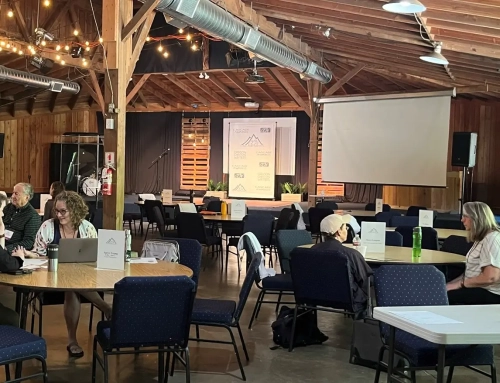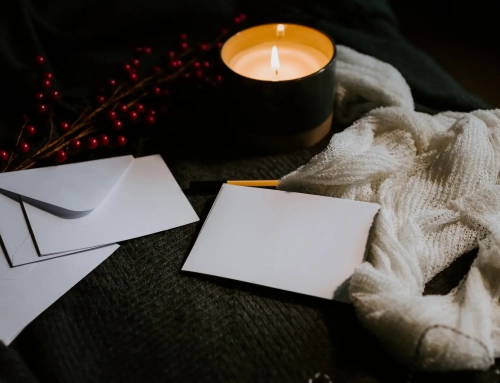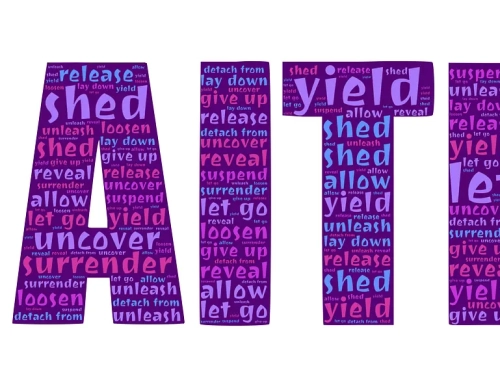by Gina Ochsner
Years ago, I attended a writing conference during which a famous author said, “Writers don’t believe in miracles; they depend upon them.” How true!
Writing is an act of faith. Each time we approach the blank page or screen, we do so believing that if words are cared for and brooded over, something larger and better will emerge. We believe that the torrent of thought will find expression in something as flimsy as a string of words. What folly. What faith.
But we persist in it: the folly and the faith, not just hoping, but believing that some image we have in mind, if clothed in the most exact and vivid words, will conjure a similar image within the imagination of our readers—who, by the way, engage in their own act of faith merely by reading.
I remind myself that each time I read or write, I’m participating in this alchemy involving the heart and the mind. But, if I am really honest, I must admit that often the magic has vanished. That is to say, I approach the page, ready to work, and nothing happens. Nothing. Panic sets in.
This phenomenon happens just often enough that I’ve marshalled a strategy I call Things to Do When I Feel Hopelessly Stuck. First item on the list: give yourself permission to grouse and grumble a bit. Canadian writer and artist Sabrina Ward Harrison finds that some of her most satisfying artistic moments have occurred out of profound artistic frustration. Tapping into her feelings of frustration at being stuck (among other frustrations) takes brilliant and vibrant expression in her artwork. So, there’s value, I remind myself, in acknowledging how crummy I feel.
In her book The Artist’s Way, screenwriter and teacher Julia Cameron urges writers to keep something she calls morning pages. This is the place, she says, where we can clear our throats. I call it clearing the decks, and I keep it simple and small. I’m just trying to employ words—any words. “Wow. Another day and I still have no ideas. I’m stuck. Stuck.”
This was the start of one morning page. After a few sentences about being stuck, my complaints morphed into a recitation of all that felt wrong inside my body. That, in turn, prompted a more philosophical question: what is the purpose of joint pain? Well, that is a question too lofty for me, and certainly for an early morning stab at writing, but something wonderful happened. I was, in fact, writing. And that’s the point, I tell myself: keep the fingers tapping over the keys or the pencil moving across the page.
Will anything of high literary importance happen in these musings? Maybe not. But recent neuroscience research suggests that doing something as unimportant as doodling on a pad of paper or writing a to-do list prompts the creative portion of the brain to warm up. And if I’m stuck staring at a blank page, a warm-up is exactly what I need.
Beloved poet William Stafford was no stranger to being stuck. His trouble, he deduced, sprang from perfectionism. If he couldn’t be sure the phrase, line, or stanza was going to be perfect (and this during the drafting stages!) paralysis quickly set in. The antidote and advice he often gave students: lower your standards. “Liberate yourself from the notion that things have to be perfect,” he told them. This is a piece of advice I have taped to the side of my computer. On those days when the magic and all motivation have evaporated, I mutter: one word. Write just one word. And then one more after that. And then another after that.

Gina Ochsner will teach a one-hour workshop “Finding Your Story, Your Vision, and Your Voice” ~ (Technique, Fiction and Nonfiction) and mentor during the upcoming 2020 Virtual Summer Conference August 19–20. Whether you are a veteran writer or just beginning the writing journey, facing the blank page can be daunting. This multi-genre workshop will focus on how to push off from the starting blocks and mine memories, experiences, and the imagination to develop new work. This is a hands-on, low-risk, high-discovery session. Don’t be too surprised if you leave the workshop with the starts to several new pieces. To register, or find out more, visit our Summer Conference page.








